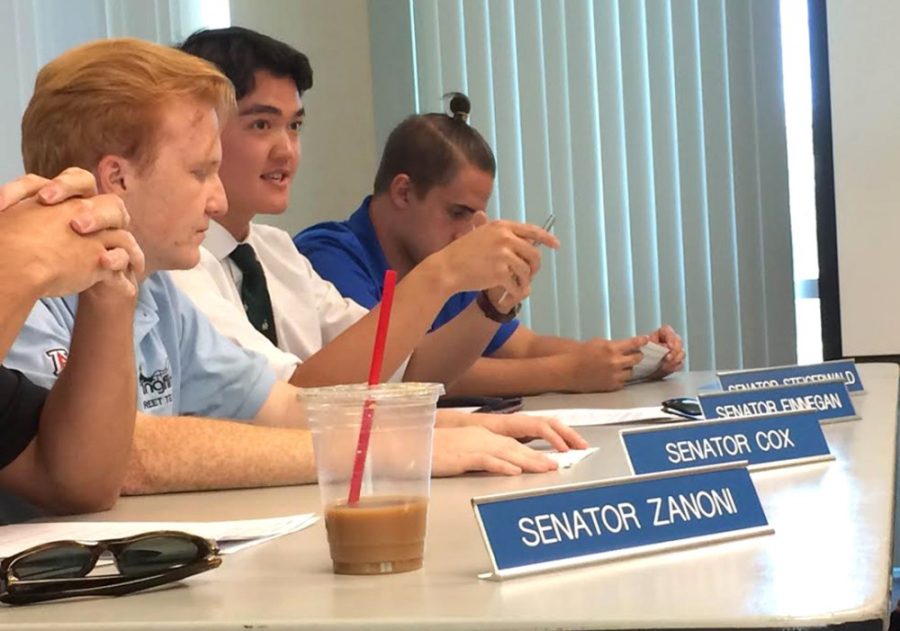ASUA senators discussed a resolution in regards to supporting DREAMers and their pursuit of higher education at last night’s weekly meeting.
The resolution drafted by Associated Students of the University of Arizona President Issac Ortega supports offering resident tuition rates to Deferred Action for Childhood Arrivals-approved youth in order to allow them increased access to higher education.
Ortega said he submitted the resolution last week, but that this topic has actually become extremely relevant in the last 48 hours in light of an Arizona Board of Regents press release.
The press release stated that during their business and finance committee meeting on May 4, where they will be setting final tuition rates for all three universities for the upcoming academic year, the regents will also be voting on a new policy providing 150 percent of resident tuition to all DACA-approved youth, according to Ortega.
ASUA Sen. Michael Finnegan said he believes there’s a huge student momentum behind this.
He added that all of the many students who spoke about this issue at the board’s interactive tuition hearing on Monday spoke in support for it. Finnegan said he’d appreciate it if senators would consider voting for it or at least thinking more about it.
Ortega said this is huge, and that he thinks student government and students have been fighting for this for the last few years.
The resolution, which explains the current situation that DACA-approved youth are in, points out that ASUA’s mission “is to serve, engage and empower the student body through advocacy and the provision of programs and resources.”
ASUA Sen. Joshua Wexler, who said he loved the discussion, pointed out that the board of regents is voting on 150 percent of resident tuition, while this resolution says that they support 100 percent of resident tuition.
“The reason behind it is, to be quite honest, you either fall on one side of the fence or the other,” Ortega said.
The 150 percent was a middle ground that the regents decided upon, and some of the numbers flowing around have been 200 and 300 percent, according to Ortega, who said 150 percent is what’s considered at cost.
“[The] 150 percent is a step in the right direction, but I really do think that all these students deserve to have at least in-state tuition,” Ortega said.
Ortega encouraged senators to consider themselves and what grants, scholarships or loans they possibly have, and that DACA students aren’t allowed any of those and have to pay full out-of-state tuition.
At the meeting ASUA senators also discussed a Homeless Bill of Rights Resolution, which ASUA Executive Vice President Jordan Allison said was sent in by a community homeless activist who has sent it throughout the community.
Multiple senators said they were concerned about the strong and ambiguous language used throughout the bill, how vague certain statements throughout the bill were and how they could possibly refer to illegal activities.
“I think we can all agree that every single one of these points is a valid, legitimate issue that homeless people face,” Wexler said, warning senators to be cautious of points that are ambitious and potentially illegal. “But I don’t think the correct response for a senate class is for us to say that we support the right by whatever means necessary to help fix these problems.”
_______________
Follow Chastity Laskey on Twitter.









